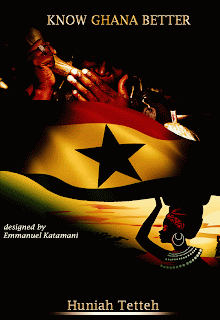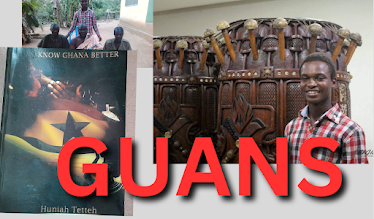The Ga Language: The Heartbeat of Accra
The Ga Language: The Heartbeat of Accra
By Huniah Tetteh
When you walk through the streets of Accra, you’ll hear the sounds of many tongues. But one language in particular carries the soul of the city and that is the Gã language. It’s more than just a language. It’s a living piece of history, a symbol of identity, and a rich cultural legacy passed down through generations.
In this post, we explore the fascinating world of the Ga language — where it comes from, who speaks it, and why it still matters today.
---
Ga is one of the major indigenous languages of Ghana, spoken mainly by the Ga people who live in and around Accra. It’s part of the Kwa branch of the Niger-Congo language family — one of the largest language families in Africa.
While Ga is closely related to Dangme, the two are not mutually intelligible. Together, they form the Ga–Dangme group, a linguistic reflection of the Ga-Dangme people’s shared heritage.
---
🗺️ Where Is Ga Spoken?
Ga is spoken primarily in:
Jamestown
Osu
La (Labadi)
Teshie
Nungua
Tema
and the entirety of the Greater-Accra Region
Although Accra is now a melting pot of many ethnic groups, Ga remains a vital part of daily life, especially in traditional ceremonies, festivals, and local governance.
---
🗣️ What Makes Ga Unique?
Ga is a tonal language, which means the pitch you use when speaking a word can change its meaning. It also has a rich sound system that includes letters like:
a ( as in ba ----- come)
ɛ (as in bɛlɛ — whistle)
ɔ (as in suɔmɔ — love)
ŋ (as in ŋmɛnɛ — today)
The language follows a Subject-Verb-Object (SVO) word order, similar to English, but has its own unique structures, expressions, and rhythms.
---
🎉 Culture and Language: A Deep Connection
Language is at the heart of Ga culture. From libation prayers to traditional storytelling, the Ga language is present at every major life event — births, funerals, marriages, and festivals.
One of the most celebrated events is the Homowo and the Kpele Festivals, where Ga people come together to remember their ancestors, give thanks for harvests, and “hoot at hunger.” Songs and chants called the "Kpele lalai or the Kpãa lalai" in Ga bring the community together and keep the oral traditions alive.
Here’s a powerful Ga proverb:
> “Kɛji onyiɛ gbɛ nɔ ni kɛ bo tee haomɔ mli 'ɛ, ekafee bo naakpɛɛ akɛ opala ohe.”
“If you follow a path that leads to disaster, don’t be surprised when you get hurt.”
---
⚠️ Is Ga at Risk?
Unfortunately, like many indigenous languages, Ga faces some serious challenges:
English dominates in schools and formal settings.
Migrant languages spoken in Accra is putting more pressure on the Ga language.
Urbanization and migration have diluted its everyday use.
But there’s hope. The language is still taught in some schools across the Greater Accra Region. Some churches and some social media channels also keep the language visible and accessible. Many people in Tiktok are gradually creating more content in the Ga language which is generating positive attitude towards the speaking of the Ga language.
---
💪 Why Ga Matters More Than Ever
Keeping Ga alive means preserving a unique worldview — one filled with wisdom, humor, resilience, and creativity. It means giving future generations a chance to connect with their roots, understand their identity, and speak the language of their ancestors with pride.
---
✅ Let’s Keep Ga Alive
If you're Ga, a friend of the Ga people, or simply passionate about African languages, here are a few things you can do:
Speak it at home or with friends.
Learn Ga proverbs and share them online.
Support Ga-language books, music, and content.
Encourage kids to learn and use the language. Let’s make sure Ga doesn’t fade — it thrives.
---
Thank you for reading! If you found this article interesting, feel free to share it or leave a comment below. Want to learn basic Ga phrases or hear native pronunciation? Follow my YouTube channel







Love this, pure facts … big ups champ 👍❤️
ReplyDeleteGreat write up! Thanks for sharing. Event though Accra is a cosmopolitan society we still need to keep the Ga language alive since that's a very important aspect of our cultural identity!
ReplyDelete